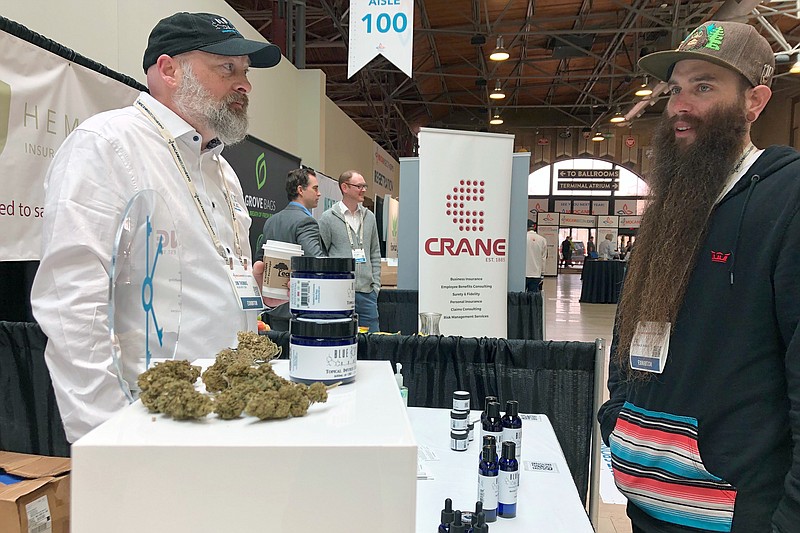Of more than 23,000 people approved to be medical marijuana caregivers and patients in 2019, a third of them also received approval to grow their own marijuana.
The data is contained within a constitutionally required annual report released Friday as part of Missouri's medical marijuana law.
Missouri's medical marijuana amendment passed in 2018 with nearly 66 percent of voters' approval. It made marijuana legal for the treatment of: cancer; epilepsy; glaucoma; intractable migraines (those persistent migraines that don't respond to other treatments); chronic medical conditions that cause severe, persistent pain or persistent muscle spasms, including, but not limited to psychiatric disorders (when diagnosed by a state licensed psychiatrist), including, but not limited to, post-traumatic stress disorder; human immunodeficiency virus or acquired dependence (if a physician determines cannabis would be effective and safer); any terminal illness; or (in the professional judgment of a physician) any other chronic debilitating medical condition.
Thousands of potential medical marijuana patients applied for licenses to purchase medical marijuana.
The division approved 23,269 patients and caregivers in 2019, despite there being no production completed or distribution of products expected until late this summer. Caregivers, by definition, are 21 years old and responsible for managing the well-being of a qualified patient.
According to the report, of those who had received qualifications to be medical marijuana patients in 2019, about 32.5 percent were seeking treatment for psychiatric conditions, 27 percent for chronic medical conditions, 16.9 percent for physical/psychological dependence, 3.9 percent for migraines, 3.7 percent for cancer, 1.5 percent for epilepsy, 1.2 percent for glaucoma, 1.1 percent for neuropathies, 0.9 percent for HIV, 0.8 percent for Crohn's disease, 0.5 percent for inflammatory bowel disease, 0.5 percent for hepatitis and 9.9 percent for other conditions that include terminal illnesses, wasting syndrome, agitation of Alzheimer's disease, cachexia, sickle cell anemia, amyotrophic lateral sclerosis, Huntington's disease and other conditions not otherwise defined.
Of patients approved for the program, 12.35 percent were ages 18-29; 21.77 percent, 30-39; 18.92 percent, 40-49; 19.22 percent, 50-59; 16.67 percent, 60-69; 4.04 percent, older than 70; and 0.37 percent 17 and younger.
When it passed, the new law laid out how the program should operate.
However, immediately after the division announced recipients of licenses, applicants who had invested millions of dollars in nonrefundable application fees for the licenses began filing suit when they learned they were bypassed.
For example, 554 suitors applied for licenses for cultivation facilities, despite the state holding firm that it would only approve 60 sites. Each application came with a nonrefundable $10,000 application fee.
Applicants argued the blind selection process was flawed, and the firm hired to assess applications was tied to a company that coached some applicants.
However, none of the decisions have been overturned.
"Hundreds of detailed processes and procedures were developed during the first year of the program operation for facility application submission and review," the report says. "These processes and procedures were the framework for ensuring each applicant had an equal opportunity to submit a fully compliant application, for accurately determining whether an application met minimum qualifications, and for effectively evaluating all scoring criteria questions for each of more than 2,270 applications received."
Each application received review in the first few weeks after it was received. Facilities that were rejected were given seven days to modify and resubmit their applications, according to the report.
Going into the final phase of implementation, the Section for Medical Marijuana Regulation is now focused on hiring and training staff to regulate compliance and provide enforcement of medical marijuana rules, the report says.
Other states are looking toward Missouri's Medical Marijuana Regulatory Program as a model as they consider marijuana legalization, it says.
"Stakeholder and public engagement will remain in the forefront," the report concludes, "as the Department of Health and Senior Services continues to build a program that provides safe and secure access to medical marijuana for qualifying Missouri patients through consistent regulation, enforcement and education."

